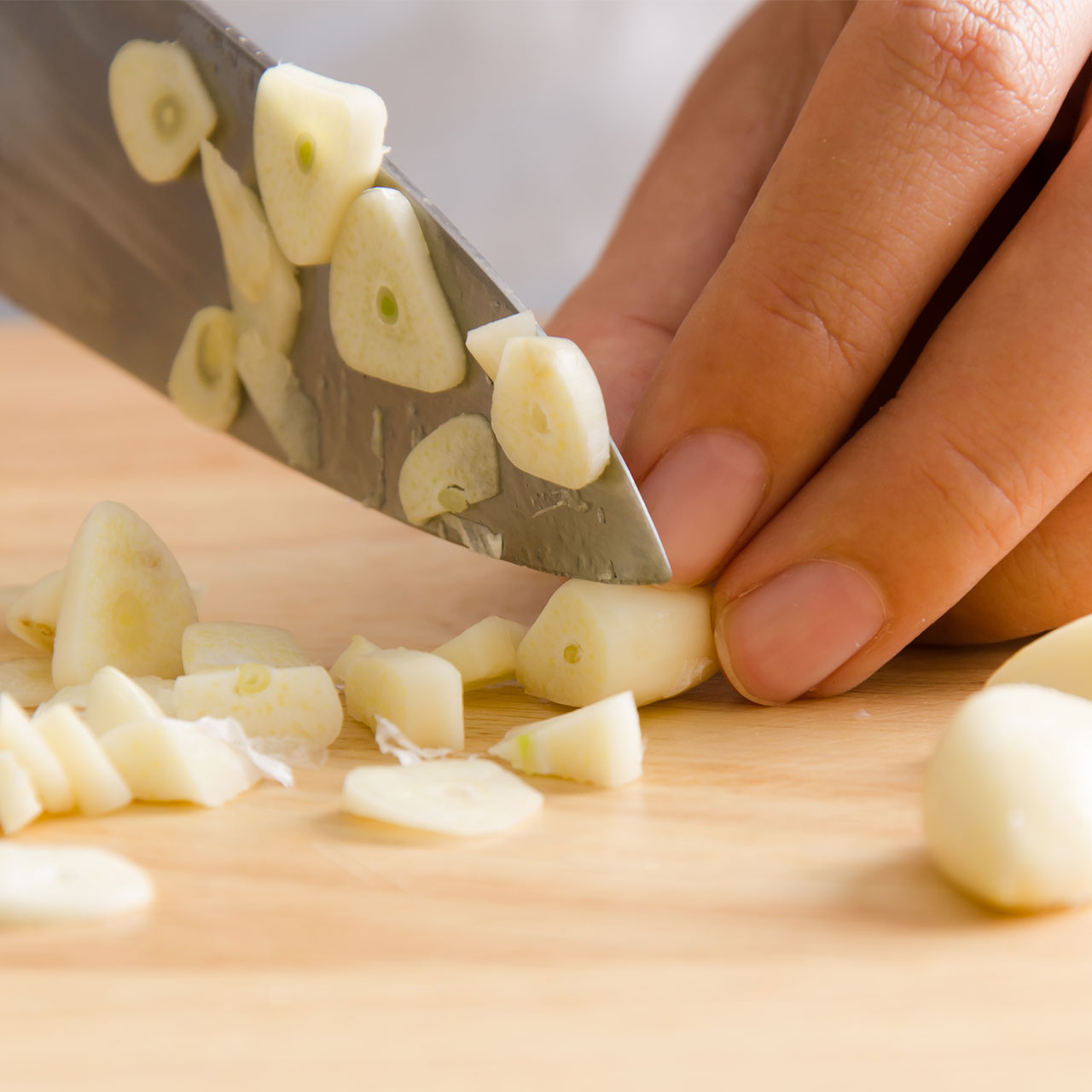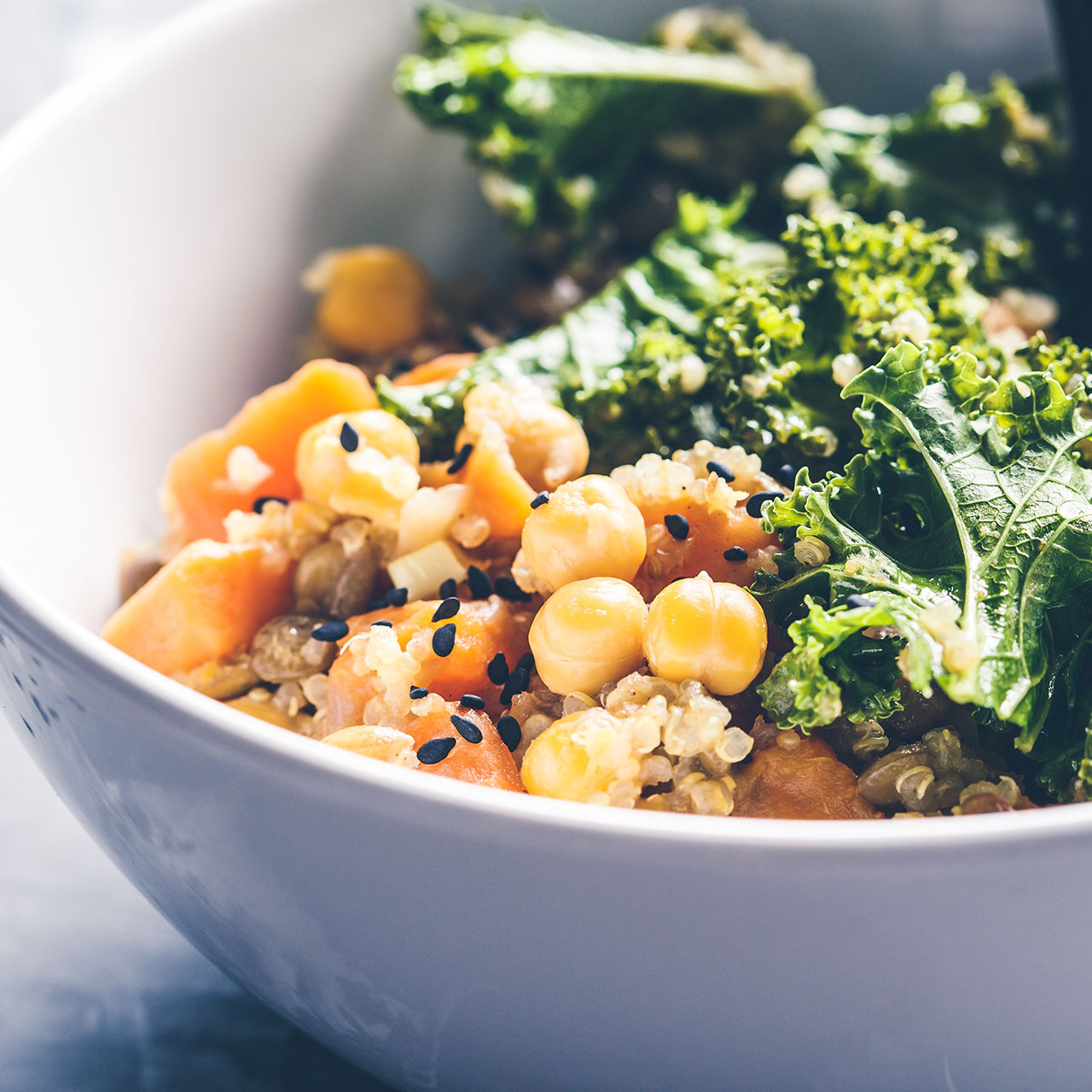Protein is an extremely important part of a balanced diet. Our body needs it to repair cells, build muscles, and more. However, with all the hype around this macronutrient, you may worry that you’re not getting enough of it. But the truth is that most Americans naturally eat enough protein without even thinking about it—and, in fact, consuming too much of it can lead to undesirable results you may not be aware of.
To learn more, we checked in with Nutritionist Jenn LaVardera, MS, RD, CDN of Daily Harvest. She gave us a full rundown on all things protein, from how to determine how much you actually need to what can happen if you get too much of it.


How Much Protein Do You Really Need?
Do you know how much protein you should actually be getting every day? LaVardera says it comes down to a combination of factors like your age and activity level. However, "a general recommendation is 0.36 grams of protein per pound of body weight each day." That means if you weight 150 lbs, you should be eating 54 grams of protein each day, she explains.
LaVardera notes that you can also just aim to make sure protein makes up 10-35% of your daily calorie intake—that means about 1/4 of your plate should be protein. "I prefer this method for most people as opposed to counting macros or measuring food because most people don't need to stress about being exact every day," she says.
It's important to get enough protein each day so that your body can properly grow and repair itself. "We use protein to build muscles, tissues, enzymes, DNA, immune cells, and more," LaVardera says. She adds that while we don't usually use protein directly for energy, our bodies may turn to this macronutrient if it's lacking carbohydrates. "If you skimp on protein, you'll likely feel fatigued, and over time, eating too little protein can lead to loss of muscle, increased risk of fractures, and impaired immunity," she warns. In extreme cases, this can lead to a type of severe malnutrition that may result in edema, liver disease, and stunted growth.
However, balance is always key—which means that on the other end of things, eating too much protein can lead to its own share of health consequences.

Too Much Protein Can Turn Into Body Fat
LaVardera says that, despite what you may have been led to believe, "most Americans are getting plenty of protein in their diets," so there's generally no need to stress over not getting enough of it. In fact, it's possible to eat too much protein, which can lead to unwanted weight gain and other health issues.
"Protein doesn't automatically turn into muscle after we eat it," she explains. "Once our bodies take care of growth and repair needs, excess protein is turned into glucose (carbs) and used for energy." Once your body gets all of the energy it needs from those carbs, the extra unused protein you consume will be "turned into body fat and stored for later."
Additionally, LaVardera warns that "eating a very high-protein diet long term can be taxing on the kidneys" and has even been linked to a higher risk of kidney disease. Yikes!
If you want to ensure you're consuming the right amount of protein from the healthiest sources, LaVardera offers some advice. First, she says that rather than skimping on protein for breakfast and loading up for dinner, "it's better to incorporate a little protein with every meal and snack throughout the day."
LaVardera also recommends getting your protein from a variety of sources, especially plant-based ones. "I recommend regularly eating beans, legumes, nuts, seeds, and even whole grains," she says, noting that "they all contain plant-based protein along with other essential nutrients like fiber." As an added bonus, "plants offer phytochemicals, antioxidant compounds that can improve overall health."
Eating a wider variety of plant proteins is a great way to make sure you're getting all of the essential amino acids your body needs to thrive. "We now know that if you eat a wide variety of different plants throughout the day, it’s pretty easy to meet your amino acid needs without even thinking about it," LaVardera says. Perfect!
All in all, protein is an important macronutrient that you shouldn't disregard. However, too much of anything is never good, so just be sure not to overdo it. As long as you're consuming a variety of foods, maintaining a balanced diet, and ensuring that protein makes up roughly a quarter of the food you eat, you're on the right track!


























